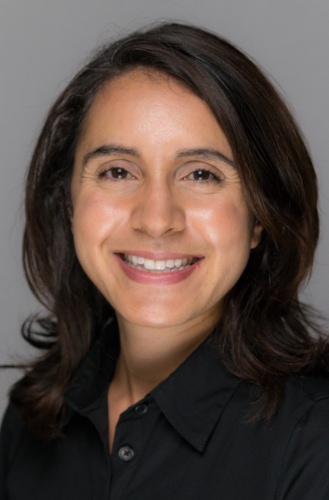UW-Madison biochemist wins Shaw Scientist Award
Ophelia Venturelli, assistant professor of biochemistry at the University of Wisconsin–Madison, is one of two researchers in the University of Wisconsin System to earn seed funding from the Greater Milwaukee Foundation’s Shaw Scientist Program to pursue innovative approaches to advancing human health while supporting their career development.
Venturelli joins Ionel Popa, an assistant professor of physics at the University of Wisconsin–Milwaukee, in receiving a 2017 Shaw Scientist Award. Each researcher will be given a $200,000 grant to further their projects. For more than 30 years, the program has supported early career investigators seeking innovative solutions in biochemistry, biological sciences and cancer research.
“Being named a Shaw Scientist is a signature recognition for investigators in the initial stages of their careers. Selections are made by a distinguished panel of scientists, so the research is held to a very high standard. And the funding is discretionary, so recipients can choose how to use it for greatest impact in their field,” says Ellen Gilligan, Greater Milwaukee Foundation president and CEO. “Exploring new frontiers in science and health honors the intent of Dorothy Shaw, the philanthropist who made this award possible.”
Venturelli’s lab seeks to understand how diverse networks of microorganisms living in the human gut communicate to realize key functions that impact health. Her goal is to determine how these microbes process information in response to environmental pressures and, in turn, function collectively as a community.
The research may lead to the ability to engineer behaviors among beneficial microbes in the gut ecosystem, which could be used to enhance their resilience to invasion by pathogens or unintended impairment from antibiotics.
“Today’s funding climate for scientific research is highly competitive, and the likelihood of funding depends on preliminary results,” Venturelli says. “The Shaw Scientist Award will allow us to explore new research directions, including high-risk experiments, that will be used to attract external funding and for publications.”
Venturelli’s research may lead to the ability to engineer behaviors among beneficial microbes in the gut ecosystem, which could be used to enhance their resilience to invasion by pathogens or unintended impairment from antibiotics.
Venturelli earned her doctorate in 2013 from the California Institute of Technology, followed by postdoctoral training at the University of California, Berkeley. She received her bachelor’s degree from Stanford University in 2006.
Popa is investigating the process by which proteins in the body fold and function under force, and how these processes are used by cells to adapt to their local environment, which may help him develop new diagnostic tools and therapeutics for cancer, muscular dystrophy and inflammatory bowel disease.
The Shaw Scientist Awards program began in 1982 thanks to a $4.3 million bequest from Dorothy Shaw, widow of James Shaw, a prominent Milwaukee attorney. In addition to $2 million in special grants, the Shaws’ fund has awarded about $14 million in grants to 73 scientists from UW–Madison and UW–Milwaukee. An advisory panel including scientists representing major U.S. research institutions recommends the winners.
Founded more than a century ago, the Greater Milwaukee Foundation is the region’s largest community foundation, and was among the first established in the world.
Tags: biosciences, chemistry, faculty awards, research





